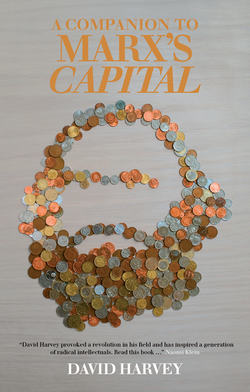Читать книгу A Companion to Marx's Capital - David Harvey - Страница 7
На сайте Литреса книга снята с продажи.
Preface
ОглавлениеWhen it became known that the lectures I give annually on Marx’s Capital, Volume I, were about to go online as a video series, I was approached by Verso and asked whether I would have any interest in preparing a written version. For a variety of reasons, I agreed to the idea.
To begin with, the failing economy and the onset of what threatens to be a serious global crisis, if not depression, have generated an upwelling of interest in Marx’s analysis to see whether it can help us understand the origins of our current predicaments. The problem, however, is that the past thirty years, most particularly since the fall of the Berlin Wall and the end of the cold war, have not been a very favorable or fertile period for Marxian thought, and most certainly not for Marxian revolutionary politics. As a consequence, a whole younger generation has grown up bereft of familiarity with, let alone training in, Marxian political economy. It therefore appeared an opportune moment to produce a guide to Capital that would open the door for this generation to explore for itself what Marx might be about.
The timing for a constructive reevaluation of Marx’s work is opportune in another sense. The fierce oppositions and innumerable schisms within the Marxist movement that bedeviled the 1970s, affecting not only political practices but also theoretical orientations, have faded somewhat, as has the appetite for pure academicism which, on the one hand, helped keep interest in Marx alive in difficult times, but, on the other, did so at the price of arcane and often highly abstract arguments and reflections. My sense is that those who wish to read Marx now are far more interested in practical engagements, which does not mean they are fearful of abstractions but rather that they find academicism boring and irrelevant. There are many students and activists who desperately desire a strong theoretical base to better grasp how everything relates to everything else, so as to situate and contextualize their own particular interests and practical political work. I hope that this presentation of the basics of Marxian theory will help them do that.
In preparing this text, I worked from transcripts prepared by Katharina Bodirsky (to whom many thanks) of the audio recording of the lectures given in the spring of 2007. The video lectures (see davidharvey.org), organized by Chris Caruso (who also designed the website) and filmed by the Media College of the University of the Poor in New York and the Media Mobilizing Project in Philadelphia, were given in the fall of 2007. I want to thank Chris and everyone else for all their volunteer work on the project.
There were, however, significant differences between the audio and the video versions. These arose mainly because I always give the lectures in a somewhat extempore way, concentrating on different aspects of the text depending on political and economic events, as well as on my own interests (and even whims) of the moment. Class discussions also frequently redirect attention in unpredictable ways. Unfortunately, space would not allow for inclusion of the discussions, but I have several times incorporated elements from them into the main body of the text when that seemed appropriate. While I worked mainly from the audio version, I incorporated elements from the video materials as well. Of course, the editing of the transcripts had to be fairly draconian, in part for space reasons, but also because the translation from the spoken to the written word always requires significant and in some cases quite drastic modifications. I have also taken the opportunity to clear up some matters not covered in the lectures and to add a few further thoughts here and there. The text I use in the course is the translation by Ben Fowkes first published by Pelican Books and the New Left Review in 1976, republished by Vintage in 1977, and then in a Penguin Classics edition in 1992. The page numbers referred to are from these editions.
My hope is that this “companion”—and I really think of it as a companion on a journey rather than as an introduction or interpretation—will provide a helpful entry to Marx’s political economy for anyone who wants to travel that road. I have tried to keep the presentation at an introductory level without, I hope, oversimplification. Furthermore, I have not considered in any detail the many controversies that swirl around diverse interpretations of the text. At the same time, the reader should understand that what is presented here is not a neutral interpretation, but a reading that I have arrived at over nearly forty years of teaching this text to all manner of people from all sorts of backgrounds (to whom I am indebted, since they have taught me a great deal), while also trying to use Marx’s thought constructively in my own academic research in relation to political action. I do not seek to persuade people to adopt my own distinctive point of view. My ambition is to use my point of view as a gateway for others anxious to construct interpretations that are maximally meaningful and useful to them in the particular circumstances of their lives. If I have only partially succeeded in that, then I will be absolutely delighted.
